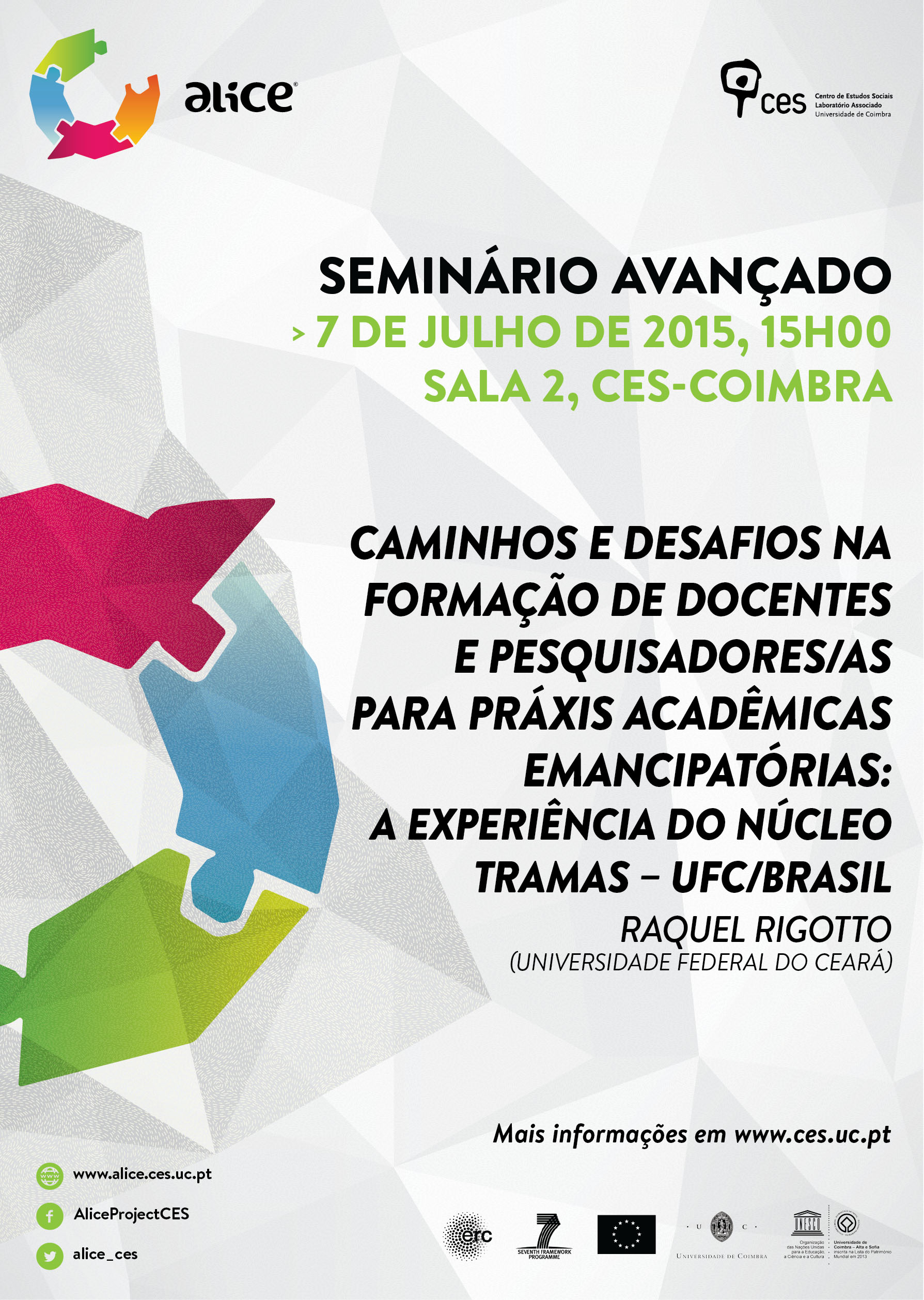ALICE Advanced Seminar
Paths and challenges in the training of teachers and researchers towards emancipatory academic praxis: the Tramas Group – UFC/Brazil experience
Raquel Rigotto (Universidade Federal do Ceará)
July 7, 2015, 15h00
Room 2, CES-Coimbra
Abstract
If we are critical to modern science and the University’s role in compliance with the reproduction of the civilization of capital, how can we build counterhegemonic academic practices capable of, in articulation with communities, organizations and social movements, producing knowledges and teachers who can contribute to processes of emancipation driven by the more vulnerable social groups? This Seminar will present paths and challenges learned by the Tramas Group– Labour, Environment and Health Centre, of the Federal University of Ceará/Brazil, in dialogue with this issue.
Bio note
Raquel Rigotto
Graduated in medicine at Federal University of Minas Gerais (1979), a specialist in Occupational Medicine by Fundacentro (1980), Master of Education from the Federal University of Minas Gerais (1992) and PhD in Sociology from the Federal University of Ceará (2004). Associate professor of the Department of Community Health, Faculty of Medicine, Federal University of Ceará, where she teaches, conducts research and outreach activities in Public Health, focusing on: Development, Health & Environment and Occupational Health. Her research in the Graduate Programme in Public Health at UFC focuses on Production, Environment, Health and Culture in Northeast Brazil. At TRAMAS – Labour, Environment and Health Centre, which she coordinated, Rigotto completed research projects on ongoing environmental conflicts in Ceará, such as industrialization, shrimp farms, footwear industry and pesticides, all backed by CNPq. She is currently conducting research on the national policies on irrigation and agribusiness, pesticides and cancer; and uranium mining in Ceará. She was Councillor Holder for the National Health Council and member of Working Group on Health and Environment of the Brazilian Association of Public Health - Abrasco and the Brazilian Environmental Justice Network.
Activity within the project ALICE – Strange Mirrors, Unsuspected Lessons: Leading Europe to a new way of sharing the world experiences.


